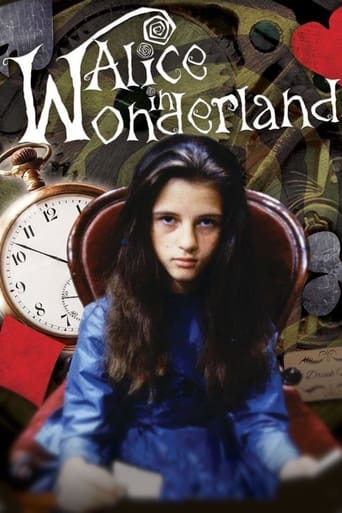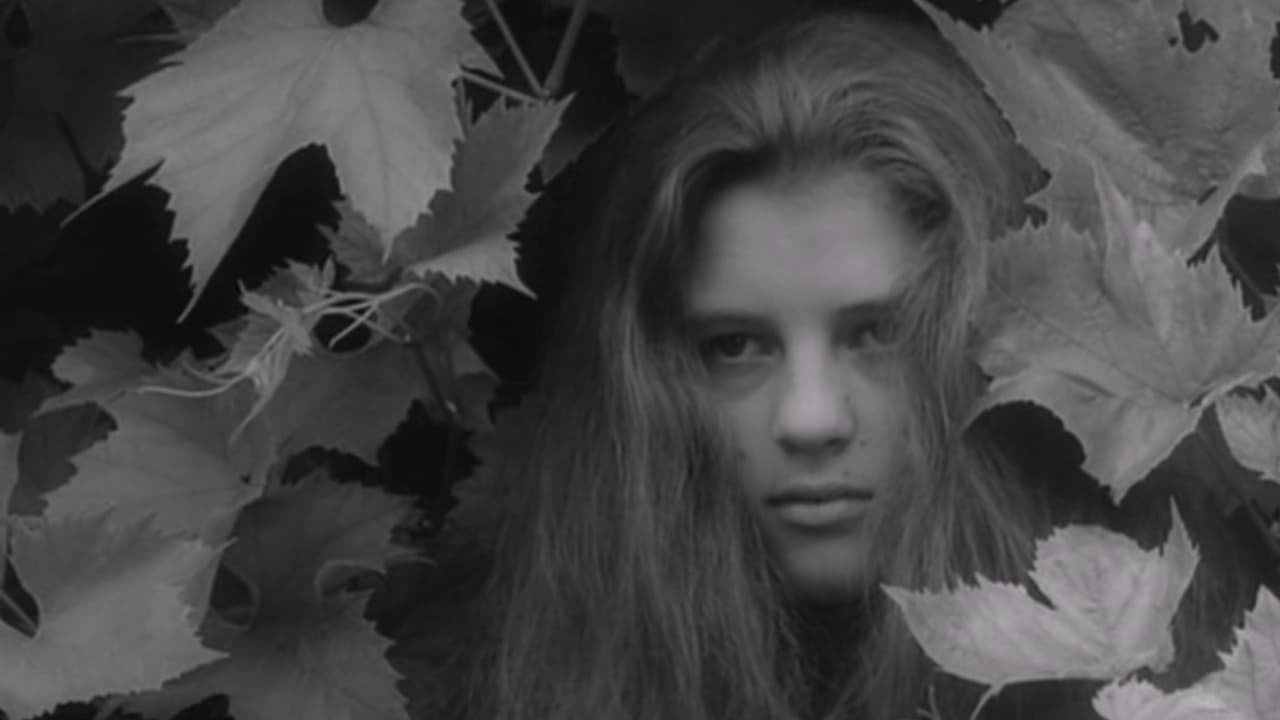eyesour
Carroll's two Alice books are among the greatest works ever written in the English language. Their perfection is only accessible to the intellectually enlightened, and not always to them. Miller probably considers himself one of these elected ones, but I wonder. His version is interesting, praise-worthy for making you, me and a few others think, but I honestly suspect he hasn't got the full story.This (mostly) first Carroll book is about how an intelligent, growing child begins to encounter the reality of the nasty and irrational adult world. Starting, like the Count of Monte Cristo, with a birth trauma, which is not a dream but more of a nightmare, the child is ejected into this unpleasant place, via its passage through amniotic fluid. It gives itself the prize of the thimble of life. Its staccato physical growth, both embryonic and post-birth, is accurately reflected --- the caterpillar is a perfect personification of metamorphosis --- as are its subsequent meetings with the enigmas of adult laws, punishments and regulations, the bullying, uglification and derision of mankind; the peremptoriness of authority, and its penchant for hypocritical and homiletic moralising. The book also probes time and space, but not as deeply as its wonderful sequel, Looking-Glass, which actually impresses me even more The final conclusion, in Carroll's original, is that human society is merely nothing but a house of cards, as any mature intellect will recognise, sooner or later. Jonathan leaves this out, and he shouldn't have. But I'll give him eight stars, anyway. Ms Maxwell-Muller was known to me.Miller doesn't seem to have fully cottoned on to my indubitably correct understanding of the work, and dithers about, in the persona of Ms Mallik, supposing it all to be a dream. It isn't a dream, except in the sense, as we are recently informed, that life as we know it is merely the figment of some alien person's imagination. Namely, the red king's. It's his dream, not ours. Carroll fully realised that our universe is an early numerical simulation with unimproved Wilson fermion discretization, but he was not able, in his time, to investigate potentially-observable consequences.There are the usual comments by the usual nitwits about the "budget" spent on this effort. Good work has totally nothing whatever to do with "budget". The only "budget" needed by genius is a pencil and paper, set in motion by a brain. It seems incredible that there actually are people reviewing this film who have never read the book.
amosduncan_2000
I'm not sure I completely buy Jonathan Miller's account of the book, but his interpretation (as he explains it on the commentary track) is pretty wonderful on balance. It's funny, surprising, beautiful and mostly about the nature of dreams. The cast, for fans of British movies and TV of the period, may have never been equaled. There's one from "Help", there's one from "A Hard Day's Night", there's the midget from "The Prisoner!" Wonderful. The only real question is "Where's Dudley Moore?" At any rate, I just found out about this movie, it's only been out on DVD for a year or two but it's one I think I will always treasure.
Professor Klickberg
"Who am I?" asks a shabbily dressed, scruffy-haired incarnation of Lewis Carroll's immemorial little girl lost. Of course, the answer's come in various forms ever since such cinematic endeavors as Cecil Hepworth's "Alice in Wonderland," made in 1903 (at 12 minutes, the longest British film of the day; Cecil, you'll remember, two years later made the world's first "dog star" with his monumentally successful "Rescued by Rover," which was shown so many times that the celluloid literally deteriorated, forcing the filmmakers to completely "re-produce" it two more times; his "Alice in Wonderland," unfortunately, did not boast such a success, and thus all we have today is something that looks as though it tumbled down the rabbit hole one too many times). But enough of this sluice at the bottom of the March Hare's treacle well, eh?Made for the BBC's The Wednesday Play television series, Jonathan Miller's take on the subject matter is, as is traditionally the case, a unique one. With a budget approximating nothing more than his usual "taped stage plays" for which he previously gained great renown (think preter-PBS), Miller decided to illustrate what Alice would have gone through had all of her nonsensical dreams been steeped in the quotidian reality of her ordinary life. There are no talking birds, no storytelling mock turtles, no dormice living in teacups. In fact, short of a crude cut-out superimposition of a very ordinary looking "Cheshire cat" flying in the sky (a la the Teletubbies' eerily omniscient baby in the sun), there's really no special effects or anything that would evince this one of being the least bit chimerical
that is, unless you know the story of Alice in Wonderland already. Ostensibly, what Miller is doing here is showing us the curious, towheaded girl's "adventures" set in a world where people merely sound like birds and look like supine caterpillars sitting loftily back in their Victorian chairs and wondering aloud, "Who are you?" Imagine Wizard of Oz, but without all the costumes, flying monkeys, and mercurial trees pulling at the heroine's hair.Suddenly, we along with Alice find ourselves in a land where we were already (that is, of course, if we were a haughty 11-year-old girl wandering lackadaisically through our castellated house in the late 19th century). What we see is the "reality" of the dreamworld of Alice's waking life.And this is exactly what Miller captures in this version of the epic "children's" tale for stoners and mathematicians. In fact, the only real sense of "dreamland" we can extract from Miller's vision is a kind of proto-Gilliam realm of canted camera angles and unsettling juxtapositions of close-up faces in deep-focus environments (think Brazil or particularly Fear & Loathing in Las Vegas, which clearly owes both its visual and aural style to Mr. Miller). Truthfully, after watching this late 60's stark, black-and-white opus (if ever so disjointed and flawed), one would have to assume that Terry Gilliam took much of his artistic sensibility from what is definitely far more than a simple made-for-TV broadcast.With a quadrille of British mainstaysPeter Cook as the Mad Hatter, Sir John Gielgud as the Mock Turtle, Alan Bennett as the Mouse, an uncredited Eric Idle, and the King of Hearts himself, Peter SellersJonathan Miller, with lilting, ethereal score by Ravi Shankar, does what no other director has done to date with this timeless urtext: he shows us what would have happened had Alice stayed awake during her infamous tour through dreamland. PS: If this one doesn't do it for you, try out Czech filmmaker Jan Svankmajer's nightmarish Alice (1988), which must be the most haunting adaptation of Alice's adventures yet put on celluloid.
How-Now-Brown-Cow
Most versions of Alice in Wonderland involve bratty little girls running round a brightly coloured world inhabited by clichéd characters that sing irritating songs, and the film usually has a moral of some sort. The book has been very Americanised. But not this version.What attracted me most was the way the film was shot. It was filmed on a wide angle lens, which beautifully distorts characters' faces. The scenes in which Alice drinks the 'Drink Me' bottle are cleverly done, with the wide angle lens allowing barely any need to change furniture size.Also as good is the fact the characters (The White Rabbit, The Dodo, The March Hare) do not wear any face masks or prosthetics. Instead, they are simply dressed in Victorian clothing, which allows the actors to make full use of their acting abilities.The film consists of long sequences of silence, reflecting that of an endless boring summers day. As well as this, the actors always stare off into space whenever not doing anything which gives a feeling of an old photograph.The actors are quality. The Mad Hatter's Tea Party and the Court scene are simply wonderful, with Peter Cook as the absurd Hatter and Peter Sellers as an excellent King of Hearts.Overall, this is the best version of Wonderland that's been made, in my opinion. I highly recommend it to all fans of the book.


 AD
AD


